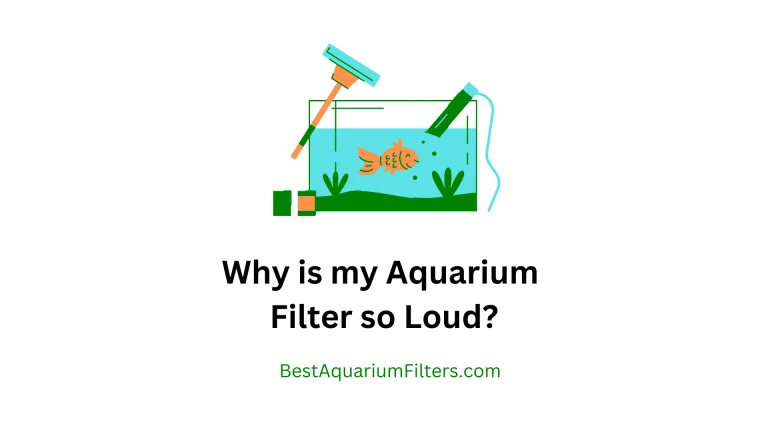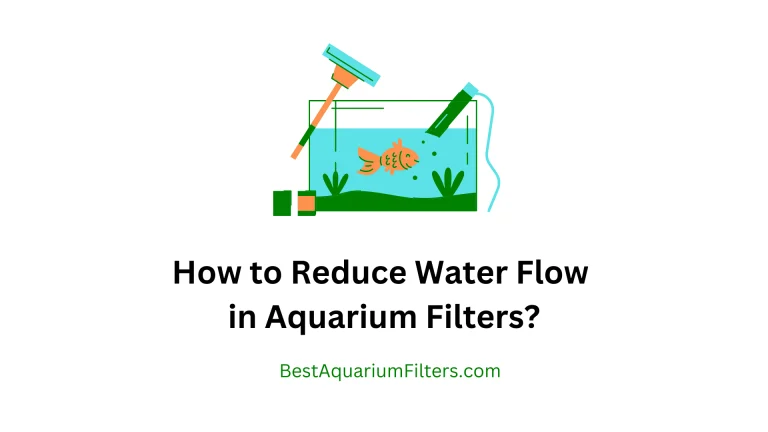How Aquarium Filters Work?
Having a clean and healthy aquarium is super important for the fish and other creatures living in it. That’s where aquarium filters come in—they’re like superheroes that keep the water clean and safe for our aquatic buddies.
These filters work in different ways to get rid of dirt, waste, and bad stuff in the water. By understanding how aquarium filters work and what affects their performance, we can ensure our fish stay happy and healthy in their underwater homes.
So, let’s dive into the world of aquarium filters and learn how these fish tank filters work.
What is Aqarium Filter?
An aquarium filter is like a cleaning tool for fish tanks. It helps keep the water clean by getting rid of dirt, waste, and bad stuff that can harm the fish. It works a bit like how nature cleans water with rocks, gravel, and plants, but it does it faster and better to make sure the fish stay healthy.
How Aquarium Filters Work?
Mechanical Filtration Process
Trapping debris and waste:
Mechanical filtration is all about catching the solid junk floating around in the water. It works by passing the water through a filter with tiny holes or fibers that grab onto these particles.
Things like uneaten food, fish waste, and plant bits get stuck in the filter instead of floating around in the aquarium. This helps keep the water clean and clear for the fish to swim in. Common types of mechanical filters include sponge filters, filter pads, and filter floss.
Removing particles from water:
After the solid junk gets trapped in the filter, it’s taken out of the water, making the water clearer and preventing other parts of the filter from getting clogged.
Clean water flows back into the aquarium without the visible gunk floating around. Even though mechanical filters mainly catch bigger stuff, they also stop organic matter from building up.
It is important because too much organic stuff can lead to problems like spikes in ammonia levels, which can harm the fish and mess up the water quality.
Biological Filtration Process
Establishing beneficial bacteria colonies:
Biological filtration is about good bacteria living in the filter media. These bacteria are super important because they help break down waste and turn harmful stuff into less harmful stuff.
The main types of helpful bacteria are nitrifying bacteria, like Nitrosomonas and Nitrobacter. They stick to surfaces in the filter media, like ceramic rings or rocks, and form cozy homes called biofilms.
These bacteria need oxygen to do their job well, so they thrive in places with lots of oxygen, like in a well-maintained aquarium filter.
Conversion of toxic substances:
Once established, the beneficial bacteria in the biological filter media begin the process of biological oxidation, which involves converting toxic substances such as ammonia (produced by fish waste and decaying organic matter) into less harmful compounds like nitrite and, eventually, nitrate.
This process, known as the nitrogen cycle, is essential for maintaining water quality and preventing ammonia toxicity, which can be lethal to fish and other aquatic organisms.
By facilitating the nitrogen cycle, biological filtration helps to establish and maintain a stable and healthy aquatic ecosystem within the aquarium.
Chemical Filtration Process
Adsorption of impurities:
Chemical filtration uses special filter material, like activated carbon, to grab onto dissolved gunk and bad stuff in the water.
Activated carbon has lots of tiny holes and a big surface area, so it can trap molecules of things like organic compounds, odors, and substances that make the water look weird.
When water flows through the filter, these impurities stick to the carbon particles, getting rid of them from the water.
Neutralization of toxins:
Besides just grabbing onto stuff, some chemical filter materials can also neutralize or change harmful substances in the water. For instance, special resins can get rid of specific pollutants or heavy metals.
Also, ion exchange resins help balance water hardness and stabilize pH levels. By tackling particular contaminants, chemical filtration works together with mechanical and biological filtration to make the water even cleaner and keep the aquarium environment healthy for the fish.
Factors Influencing Aquarium Filter Performance
Tank Size and Water Volume
The size of the aquarium and how much water it holds really matter for how well the filtration system works. Bigger tanks with more water can dilute waste and bad stuff, making the filter easier to handle.
Plus, in bigger tanks, there’s more space for good bacteria to grow and help clean the water. On the other hand, smaller tanks or ones with less water can get dirty faster because there’s not as much water to dilute the junk.
It puts more pressure on the filter, and you might need to clean it more often to keep the water clean and safe for the fish.
Fish Population and Waste Production
The number and types of fish you have and how they eat affect how much waste ends up in the aquarium. If you have too many fish or ones that make a lot of waste, it can overwhelm the filter.
This can cause levels of harmful stuff like ammonia, nitrite, and nitrate to go up. Some fish also eat a lot and leave behind more food and junk, adding to the mess.
If you want to keep the water clean and safe, it’s important to consider how much waste your fish produce and ensure your filter can handle it all.
Maintenance and Cleaning Schedule
Keeping up with regular maintenance and cleaning is super important to make sure your aquarium filter keeps working well.
Over time, the filter media can get clogged up with junk, slowing the filtration and water flow. It’s important to clean mechanical filter media, like sponge filters or filter pads, regularly to stop them from getting blocked.
Biological filter media also need cleaning every now and then to get rid of built-up sludge and gunk, which can stop good bacteria from growing properly.
If you don’t keep up with maintenance, the water quality can get worse, and your fish might get sick or stressed out. That’s why it’s crucial to have a consistent schedule for cleaning the filter and replacing the filter media. It helps keep your aquarium clean and your fish healthy.
Importance of aquarium filtration in maintaining water quality
Keeping an aquarium clean is super important for the health of the fish and other creatures living in it. In an aquarium, stuff like fish poop, leftover food, and bits of dead plants can build up fast and make the water yucky.
Without a good filter, these things can make the water dirty and smelly, which stresses out the fish and can make them sick. It can also make the water look gross, with algae growing everywhere and making it cloudy.
That’s why having a good filter is crucial. It helps get rid of all the yucky stuff, keeping the water clean and healthy for the fish and other creatures. This not only makes the aquarium look nicer but also ensures that the animals living in it stay happy and healthy.
Benefits of Using Aquarium Filters
Improved Water Quality
Aquarium filters are really important for keeping the water clean and healthy for your fish. They get rid of stuff like debris, waste, and impurities, making the water clear and nice to look at.
Plus, good filtration helps keep important water parameters like ammonia, nitrite, and nitrate levels stable, which is crucial for your fish’s and other creatures’ health. When the water quality is better, your fish are less likely to get stressed out, sick, or die prematurely.
So, having a good filter makes sure your aquarium pets stay happy and healthy.
Reduction of Harmful Substances
Aquarium filters are like superheroes, protecting your aquatic friends from harm by removing bad stuff from the water. Mechanical filtration stops solid debris and waste from decaying and releasing dangerous ammonia.
Biological filtration helps convert toxic ammonia and nitrite into safer nitrate, making the water less harmful. Chemical filtration, like using activated carbon, grabs dissolved impurities and pollutants, making the water cleaner and safer for your fish.
With these filters in action, your aquarium becomes a safer and healthier place for your aquatic buddies. It lowers the chances of them getting sick and helps them live longer.
Support for Healthy Aquatic Life
Using aquarium filters has a huge benefit: it helps create a happy and healthy environment for all the aquatic life in your tank. Fish, plants, and other creatures can thrive when the water is clean and well-filtered.
Good water quality encourages natural behaviors, reduces stress, and boosts the immune system of the aquarium inhabitants. It leads to vibrant colors, active movement, and overall vitality among your aquatic friends.
Moreover, by keeping the aquatic environment balanced and stable, aquarium filters support the growth and reproduction of beneficial bacteria and microorganisms essential for biological filtration.
It helps maintain a dynamic and sustainable ecosystem in your tank, ensuring the health and happiness of your aquarium inhabitants for the long term.
Conclusion
This article explained how aquarium filters work to keep fish tanks clean and healthy. It described three main types of filtrations. The article also mentioned factors that affect how well filters work, like tank size and the number of fish. Regular cleaning and maintenance are essential to keep filters working properly.






